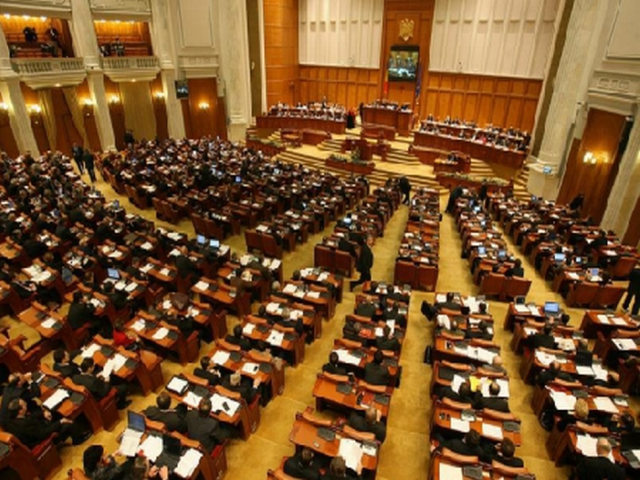The revision of the Constitution and the election process in the spotlight
A new parliamentary committee on the revision of the Constitution was set up in Bucharest

Corina Cristea, 09.03.2015, 13:23
It’s been more than a year since the Constitutional Court rejected a bill on the revision of the Constitution passed by Parliament and now fresh talks are being held on this issue in Bucharest. The first bill proposed by a parliamentary committee was challenged at the time by the former Liberal Democratic Party and the Constitutional Court judges ruled that some of the provisions of the bill went beyond revision.
One such example is the procedure for appointing the prime minister and the provision according to which MPs would lose their parliamentary seats if they resign from the parties on whose lists they were elected. The Constitutional Court also rejected the condition that people running for the Senate, the Chamber of Deputies and president of Romania must have had their residence in Romania for at least 6 months prior to elections. In the opinion of the Constitutional Court, this would run counter to the fundamental right of electing and being elected.
Another provision which was rejected read that national ethnic minorities may use freely, both in the private and public space, their own symbols representing their ethnic, cultural, linguistic and religious identity. The Constitutional Court also rejected the definition of the concept of guaranteed university autonomy on grounds that it may result in the absolute independence of universities both in terms of the management of their assets and the appointment of management structures and positions.
Senators and deputies have also been presented with a number of bills concerning local elections, the establishment of political parties and the funding of parties and election campaigns. As soon as MPs make their amendments, the bills will go back to the Election Code Committee accompanied by these amendments and will later be submitted for approval by each parliamentary chamber. The most important amendments to the legislation in force include the elimination of multiple voting by introducing an information system to check voter turnout, the election of county council presidents based on the votes of half plus one of the number of councillors in attendance, the establishment of political parties consisting of at least three members and the reimbursement of election campaign costs by the state for entities and individuals who obtain at least 3% of the votes.
On Tuesday, the election code committee will also discuss the election process for the Romanians living abroad so as to make sure that all these people can exercise their voting rights. The Liberal Party is in favour of postal voting, while the Social Democratic Party supports electronic voting.






























